What Wild Animal Courses Can I Study Online?.
It’s all too common for us humans to get wrapped up in our own little world. With our extensive range of tools and technology, we can fall into the trap of thinking we are the most powerful and important creatures in existence.
It only takes a short step into nature and being surrounded by wildlife to remind us that there is a whole other world that exists beyond our own. Watching wild animals as they hunt, feast, nest and birth their offspring is a humble reminder of how effective, successful and independent they are without the luxury’s humanity take advantage of each day.
If you are a lover of animals, and often find yourself marvelling at the vast range of weird, wonderful and cute wild animals in UK locations and overseas, you can learn more about these magnificent creatures in online courses.
No matter if you want to study wild animals out of interest, or you want to pursue jobs working with wild animals, Stonebridge Associated Colleges has a range of online wild animal courses to help you achieve your goal!
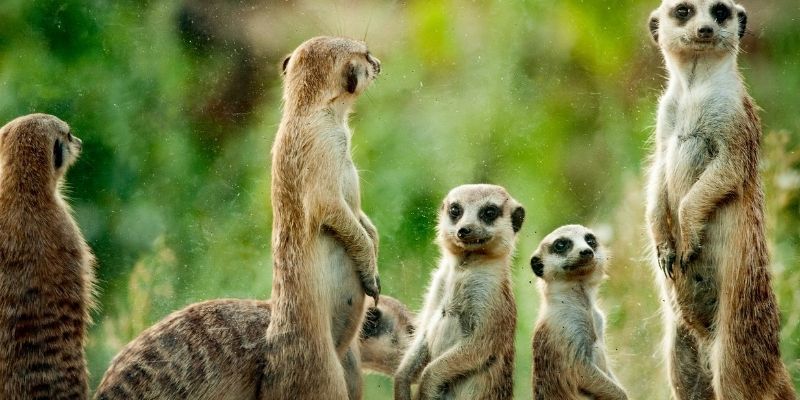
What Are Wild Animals?
If you’re an animal lover, you don’t have to go far to reap the wholesome benefits that come with spending time with animals. There are plenty of household pets and farm animals that you can get close to, study and enjoy the company of.
Though, there’s something about seeing an animal in the wild that makes you feel like you’re gaining a unique insight into life that is far removed from our own. You may be wondering exactly what makes an animal wild, as there are many animals living in different environments that could confuse this definition.
The first notion that springs to mind is that wild animals must be non-domesticated and live in the wild. Many wild animal definitions back this idea up and for the most part this is the case, however, this wild animal definition doesn’t account for the vast array of wild animal species that reside in zoos and wildlife parks.
If a lion lives in a zoo, does that mean it isn’t a wild animal? Perhaps the best clarity of the difference between domestic and wild animals comes from the National Geographic.
“Domesticated animals are animals that have been selectively bred and genetically adapted over generations to live alongside humans. They are genetically distinct from their wild ancestors or cousins… Domestication is not the same as taming. A domestic animal is genetically determined to be tolerant of humans. An individual wild animal, or wild animal born in captivity, may be tamed—their behaviour can be conditioned so they grow accustomed to living alongside humans—but they are not truly domesticated and remain genetically wild.”
Where Can You See Wild Animals?
Wild animals are all around us, from the common squirrels and birds we see day to day to the otters, adders and whales that are sighted less often. There are a host of fascinating species you can keep a look out for. Depending on your interests, you can focus your time on British wild animals or those that exist in more exotic locations like the wild animals in Africa.
While you can easily find wild animals on your doorstep, there are certain places across the globe that are great sighting spots for exceptional kinds of wild animals.
In no particular order, these include:
- Borneo – In these tropical rainforests, you will find 10 primate species, elephants, leopards, rhinos, reptiles, birds and more!
- Churchill, Canada – Great for polar bear spotting
- Costa Rica – A hive of wild animal life, see anything from crocodiles to monkeys, sloths and baby turtles
- Great Barrier Reef, Australia – See some of the most beautiful marine species, from sharks and sea snakes to starfish and stingrays
- Kangaroo Island, South Australia – The main attraction is clear, however, you can also see seals, penguins, koalas, echidnas and whales
- Kaikoura, New Zealand - See sperm whales all year round and a host of other marine species
- Serengeti National Park, Tanzania – Catch a glimpse of the ‘big 5’ and many more
- The Galapagos Islands, Ecuador – A relatively untouched area great for spotting unique wild animal species, you can find everything from tortoises to penguins and blue-footed boobies here
- Volcanoes National Park, Rwanda – Spot some of the 18 gorilla groups that live in these protected forests
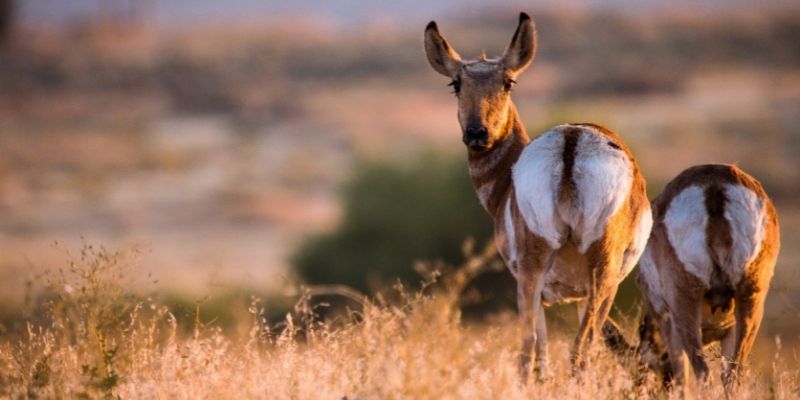
How Can You Study Wild Animals?
If you want to know more about the above fascinating species and more, you can learn all about them through highly informative online courses. Stonebridge Associated Colleges offers a large variety of animal courses catering to all interests and animal jobs. Among these is a range of courses catering specifically to the study of wild animals.
African Wildlife and Conservation Studies Diploma
Learn about the wild animals in Africa and the range of common and unique threats they face. In our online course, you will cover a range of units focussed on topics including:
- Ecological Crises and African Wildlife Ecology
- African Big Cats
- Alternative African Predators
- Herbivores of Africa
- African Primates
- African Birds
With this knowledge, you can effectively advocate for African wild animal welfare. You will be perfectly suited to secure wild animal jobs like working wild animals in zoos and safari parks, or abroad as part of international agencies that safeguard African animals’ existence in the wild.
Birds of Prey Studies Level 3 Award (RQF)
Marvel at the beauty and skilled precision of raptors in our online birds of prey course. During your studies, you will explore the biology of birds of prey, the habitats and threats faced by those in the UK, their nutritional requirements and how best to rehabilitate them.
With this nationally recognised qualification, you can confidently take up a bird watching hobby or start a career with these majestic creatures.
Carnivore Studies: Big Cats Level 3 Award (RQF)
Big cats are arguably some of the most impressive wild animals in the animal kingdom. Their sheer size, power and ferocity is enough to leave anyone speechless. If you want to develop your knowledge of these beautiful animals, you can study big cats online.
The course covers:
Unit 1: The Diversity of Carnivores: Big Cats
On completion of this unit you will:
- Know the evolutionary process of carnivores
- Understand the biology of carnivores
- Understand natural carnivore behaviour
- Understand the diversity of carnivores in the animal kingdom
Unit 2: The Principles of Carnivore Care and Conservation: Big Cats
On completion of this unit you will:
- Understand the principles of how to care for carnivores
- Know how to improve captive carnivore health
- Know how to improve captive carnivore welfare
- Understand the principles of carnivore conservation
This course is perfect for anyone who works or volunteers with big cats!
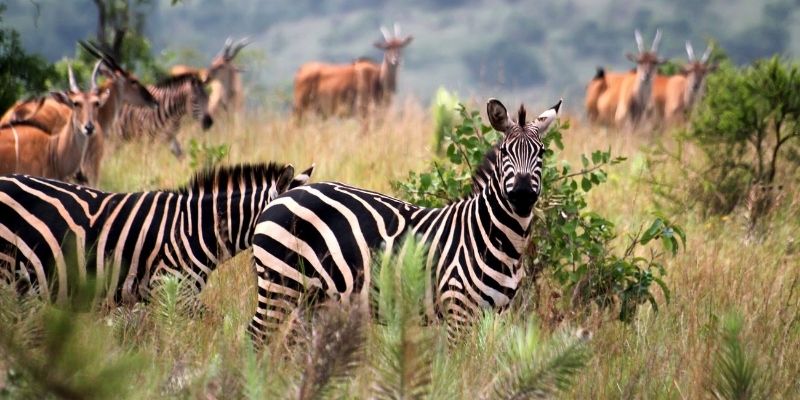
Elephant Studies Level 3 Award (RQF)
You’d be hard pressed to find someone who doesn’t love elephants. These wild animals are both majestic and incredibly intelligent, displaying a range of human-like emotions and behaviours.
You can learn all about elephants in Stonebridge’s online elephant studies course, studying everything from their evolution through to current conservation efforts.
The two main areas of focus on the course will be:
- Unit 1: Elephant Evolution, Biology, Ecology and Behaviour
- Unit 2: Elephants in Captivity and Conservation
After this, you could pursue animal jobs that focus on the care and welfare of these gentle giants.
Herpetology Diploma
If you’re specifically interested in amphibians and reptiles, the online Herpetology Diploma would be ideal for you.
Throughout the course, you’ll examine different species unique anatomy, behaviours and requirements for survival. You will also understand the important role reptiles and amphibians play in their native ecosystem.
With this knowledge, you can work with reptiles and amphibians or advocate on their behalf.
Marine Zoology Diploma
The world’s oceans are home to one of the most diverse ecosystems in existence on our planet. In studying marine zoology, you can explore marine life to understand how these underwater wild animal species have evolved and adapted over time.
The units covered include:
- Did Life Evolve in the Ocean?
- Marine Invertebrates
- The Web of Life in the Sea
- Marine Vertebrates
- Marine Adaptations
- Marine Conservation
This course is ideal for aspiring marine biologists and conservationists who want to gain a foundation knowledge, before embarking on study art university.
Primate Studies Level 3 Award (RQF)
Non-human primates come in all manner of shapes and sizes, from cute and small to the huge and dominating, they are a fascinating group of mammals to study. You can learn the different features and unique characteristics of these wild animals through an online primate studies course.
You will not only study their biology, ecology and behaviours, but also the conservation efforts in action to protect these wild animals and the way primates are managed. After which, you can pursue animal jobs relating to the care, welfare and conservation of primates.
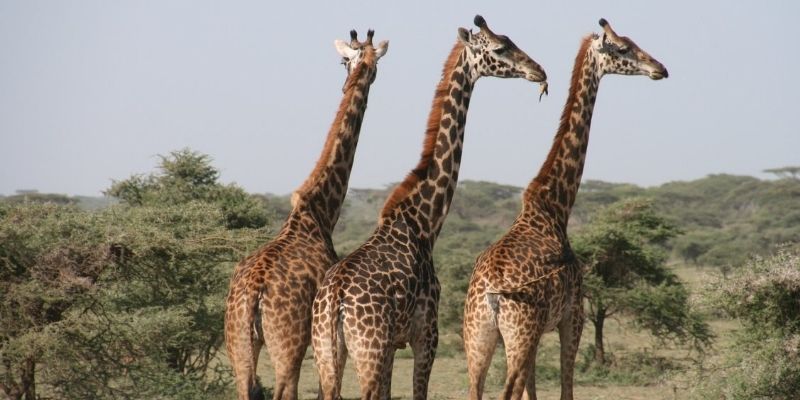
Reptile Studies Level 3 Award (RQF)
If you would like to focus your studies specifically on reptiles, Stonebridge have an online Reptile Studies Level 3 Award (RQF) that will teach you how to care for these wild animals and promote good health and welfare.
Your studies will cover:
Unit 1: Reptile Biology, Behaviour and Conservation
On completion of this unit you will:
- Investigate the current conservation efforts surrounding reptiles in the wild
- Understand the different behaviours in reptiles
Unit 2: Reptile Care and Welfare
On completion of this unit you will:
- Develop an understanding of the welfare and care requirements for different species of reptiles
- Gain an understanding of reptile welfare and how to promote it
Wild Animal Behaviour Diploma
The ways in which animals behave can tell us a lot about them, but also a lot about wider problems and changes in the world. You can study wild animals as a collective and gain a better perspective on the reasoning for changes in their behaviour in this online Wild Animal Behaviour Diploma.
The units covered include:
- Learning Process and the Development of Behaviour
- Seasonal Breeding, Migratory Behaviour and Mating
- Animal Aggression, Communication and Social Behaviour
Upon completion, you will have the skills to observe and understand behaviours exhibited by animals in their natural habitat.
Wildlife Photography Level 3 Award (RQF)
If you are mesmerised by the beauty and endearing features of wild animals, you can learn to capture images of them that will last forever in an online wildlife photography course.
Not only will you learn how to use wildlife photography equipment and the best camera for wildlife photography, you will be shown the best techniques for photographing different wildlife species.
To help you practice what you have learnt and build up your portfolio, you will also complete hands-on training with an experienced wildlife photography expert. This will consist of a two-day practical placement at Jimmy’s Farm and Wildlife Park in Suffolk, where you will get to photograph an array of exotic wild animals and hone your wildlife photography skills.
Wildlife Rehabilitation Studies Diploma
While they are incredibly independent and navigate the wild successfully, thanks to many manmade aspects of society, wild animals can end up in dangerous and life-threatening situations. By studying this online Wildlife Rehabilitation Studies Diploma, you can learn how to assess their health and tend to their injuries.
This course covers a number of topics, including:
- First Aid Principles
- Vital signs and how to assist an injured animal
- Treating an injury
- Hygiene and Health
- First Aid Kit Essentials
- Wildlife Care and Rescue Centres
With this knowledge, you will know the correct ways to approach wild animals, handle and care for them, while imposing minimal trauma, all of which will perfectly align you with animal rehabilitation jobs and similar employment opportunities.
Zoology Level 3 Diploma
If you want to start a career relating to wild animals, one of the best ways into a number of animal jobs is by studying zoology. Zoology explores the origin of life and how it diversified into the vast array of life we see today.
The course covers several fascinating modules, including:
- Origin of Life and Evolutionary Theory
- Animal Diversity
- Mammals
- Animal Form and Function
- Finding Food
- Reproduction
- Animals and their Environments
With this knowledge, you will be desirable for a number of roles in the wildlife and conservation sectors. You could also pursue more senior animal jobs by continuing your zoology studies at university.
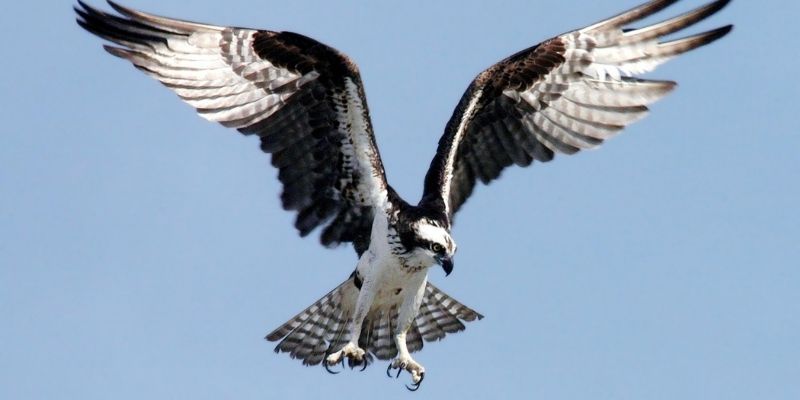
What Jobs Work with Animals in the Wild?
All of the above wild animal courses, along with the other online animal courses offered by Stonebridge, either provide direct preparation or an ideal starting point in your education for a number of exciting and important animal jobs.
Whether your ambitions are to work with wild animals in UK locations or more exotic wild animals, there are a host of rewarding roles you can work towards.
Just some of these include:
- Animal Rescue Officer
- Aquarist
- Fish and Game Warden
- Herpetologist
- Ichthyologist
- Marine Biologist
- Primatologist
- Wildlife Biologist
- Wildlife Officer
- Wildlife Veterinarian
- Zoo Curator
- Zoo Educator
- Zookeeper
- Zoologist
Study Wild Animals Today!
If you’re ready to take your adoration for wild animals into a career, Stonebridge Associated Colleges have the online courses to help you reach your goals.
Animals no matter how independent can need the assistance of humans for many reasons. Whether your passions lie in conservation, wild animal welfare or animal rescue and rehabilitation, you can get the skills to support and prolong the lives of different species.
Find out more by speaking with our Course Executives today on 0121 392 8288, contact them online or click here to view our wild animal courses in more detail.




